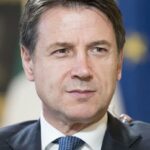Introduction
Italy, a country with a rich cultural heritage and a tumultuous political history, is once again at a crossroads. The current political panorama in Italy is marked by significant changes, controversies, and debates. Central to these discussions is the concern over the rise of far-right ideologies and the perception of a resurgence of fascism within the government. This article provides an extensive overview of Italy’s contemporary political landscape, examines the key players and parties, and delves into the contentious issue of rising fascism and its implications.
The Political Landscape
Key Political Parties and Figures
- Brothers of Italy (Fratelli d’Italia, FdI)
- Leader: Giorgia Meloni
- Ideology: Nationalism, conservatism, right-wing populism
- Current Influence: The FdI has gained significant traction in recent years, becoming a major political force. Meloni, a vocal critic of immigration and the European Union, has positioned herself and her party as defenders of Italian sovereignty and traditional values.
- League (Lega)
- Leader: Matteo Salvini
- Ideology: Right-wing populism, anti-immigration, Euroscepticism
- Current Influence: Salvini’s League has maintained a strong presence, particularly in Northern Italy. Salvini’s hardline stance on immigration and his “Italy First” policies resonate with a considerable portion of the electorate.
- Forza Italia (FI)
- Current Leader: Post-Berlusconi, leadership is transitional
- Ideology: Center-right, liberal-conservatism
- Current Influence: Although Silvio Berlusconi passed away in June 2023, his legacy continues to shape Forza Italia. The party remains an important player in Italian politics, often forming coalitions with other right-wing parties.
- Democratic Party (Partito Democratico, PD)
- Leader: Elly Schlein
- Ideology: Center-left, social democracy
- Current Influence: The PD continues to be the main party on the left, advocating for progressive policies, social justice, and stronger European integration.
- Five Star Movement (Movimento 5 Stelle, M5S)
- Leader: Giuseppe Conte
- Ideology: Populism, direct democracy, anti-establishment
- Current Influence: M5S, once a dominant force with its anti-establishment rhetoric, has seen its influence fluctuate. However, it remains a significant entity in Italian politics.
Leaders: Detailed Profiles
 Giorgia Meloni (Brothers of Italy)
Giorgia Meloni (Brothers of Italy)
Background: Born in 1977 in Rome, Giorgia Meloni entered politics at a young age, joining the Youth Front of the Italian Social Movement (MSI), a neo-fascist party. She later became a member of the National Alliance, which succeeded MSI, before co-founding Brothers of Italy in 2012.
Political Rise: Meloni has been a Member of Parliament since 2006 and served as Minister of Youth in Berlusconi’s government. Her leadership of FdI has been marked by a steady rise in popularity, particularly among voters disillusioned with mainstream politics.
Policies and Controversies: Meloni’s policies focus on nationalism, family values, and anti-immigration. She has been criticized for her party’s nostalgic references to Italy’s fascist past and for fostering divisive rhetoric. Critics argue that her emphasis on “traditional values” often marginalizes LGBTQ+ communities and immigrants.
 Matteo Salvini (League)
Matteo Salvini (League)
Background: Born in Milan in 1973, Matteo Salvini joined the Northern League (Lega Nord) in the early 1990s. Originally a regionalist party advocating for the independence of Northern Italy, it rebranded under Salvini’s leadership to a nationalist, anti-immigration force.
Political Rise: Salvini’s ascent in Italian politics was marked by his tenure as Deputy Prime Minister and Minister of the Interior from 2018 to 2019. His tough stance on immigration and Eurosceptic rhetoric have made him a polarizing figure.
Policies and Controversies: Salvini’s policies are heavily focused on immigration control and national security. His decision to close Italian ports to migrant rescue ships drew widespread condemnation from human rights organizations. Critics accuse him of fostering xenophobia and undermining Italy’s humanitarian commitments.
 Forza Italia (Post-Berlusconi Leadership)
Forza Italia (Post-Berlusconi Leadership)
Background: Forza Italia was founded by Silvio Berlusconi in 1994 and has been a significant player in Italian politics since then. Berlusconi’s death in June 2023 left a leadership vacuum, leading to a period of transition and reorganization within the party.
Political Influence: The party remains influential in center-right coalitions and continues to advocate for liberal-conservative policies, including economic liberalization, lower taxes, and strong support for business interests.
Current Challenges: Forza Italia faces the challenge of redefining itself in the post-Berlusconi era. The leadership transition and the need to appeal to a new generation of voters are critical issues for the party’s future.
 Elly Schlein (Democratic Party)
Elly Schlein (Democratic Party)
Background: Born in 1985 in Lugano, Switzerland, Elly Schlein has a diverse background in law, human rights, and European politics. She entered Italian politics with the Democratic Party and has been an advocate for progressive causes.
Political Rise: Schlein’s rise in the PD has been marked by her focus on social justice, environmental sustainability, and European integration. She represents a younger, more progressive wing of the party.
Policies and Controversies: Schlein’s policies emphasize social equity, environmental protection, and strong support for the European Union. She has been a vocal critic of the far-right and has pushed for more inclusive and sustainable policies. Her stance on issues like immigration and LGBTQ+ rights often puts her at odds with conservative elements in Italian politics.
 Giuseppe Conte (Five Star Movement)
Giuseppe Conte (Five Star Movement)
Background: Born in 1964 in Volturara Appula, Giuseppe Conte is a law professor who entered politics as a relatively unknown figure. He was appointed as Prime Minister in 2018 as a compromise candidate in the coalition government between M5S and the League.
Political Rise: Conte’s tenure as Prime Minister saw him navigate the complexities of coalition politics and the challenges of the COVID-19 pandemic. He later led a second government with the PD after the collapse of the M5S-League coalition.
Policies and Controversies: Conte’s leadership of M5S focuses on anti-establishment and direct democracy principles. His government implemented significant economic and social measures during the pandemic. However, his tenure was also marked by criticisms of his handling of certain crises and the ideological inconsistencies within M5S.
Controversies and Concerns
Rise of Far-Right Ideologies
The most controversial aspect of Italy’s current political scenario is the perceived rise of far-right ideologies and the fear of a fascist resurgence. This concern is primarily directed towards parties like Brothers of Italy and the League, whose leaders have often been accused of promoting nationalist and xenophobic sentiments.
- Giorgia Meloni and Brothers of Italy:
- Rhetoric and Policies: Meloni’s rhetoric often emphasizes nationalism, traditional family values, and opposition to immigration. Critics argue that her speeches and policies echo Mussolini-era fascism, promoting exclusionary and authoritarian ideas.
- Symbolism: The party’s use of symbols and references to Italy’s fascist past has raised alarms. For instance, the FdI logo includes a tricolor flame, reminiscent of the emblem used by the Italian Social Movement (MSI), a neo-fascist party formed after World War II.
- Matteo Salvini and the League:
- Immigration Stance: Salvini’s anti-immigration stance has been a central pillar of his political strategy. His policies, such as closing ports to migrant rescue ships, have been criticized as inhumane and reminiscent of fascist-era exclusion.
- Law and Order: Salvini’s emphasis on law and order, often coupled with harsh rhetoric against minorities and political opponents, has further fueled concerns about the erosion of democratic norms.
Democratic Backsliding and International Reactions
The international community has also expressed concerns about Italy’s political direction. Organizations like the European Union and human rights groups have warned against the potential erosion of democratic principles and the rule of law in Italy.
- EU Relations: Italy’s increasingly Eurosceptic stance under right-wing leadership poses challenges for its relationship with the EU. Disputes over issues like migration, budgetary constraints, and judicial independence have strained ties.
- Human Rights: Human rights organizations have highlighted the potential risks to civil liberties and minority rights under the current political climate. Reports of increased discrimination and violence against immigrants and marginalized communities are particularly troubling.
Controversial Opinions
The debate over the rise of fascism in Italy is highly polarized. Here are some of the controversial opinions from both sides of the spectrum:
Supporters’ Viewpoint
- National Identity: Supporters argue that emphasizing national identity and sovereignty is essential for preserving Italy’s cultural heritage and protecting its citizens’ interests.
- Immigration Control: Advocates of stricter immigration policies believe that such measures are necessary for maintaining social cohesion and ensuring national security.
- Economic Autonomy: Eurosceptics within the right-wing factions contend that reclaiming economic autonomy from the EU will allow Italy to implement policies tailored to its unique needs and challenges.
Critics’ Viewpoint
- Fascist Resurgence: Critics warn that the rhetoric and policies of parties like Brothers of Italy and the League are alarmingly similar to those of fascist regimes, promoting exclusionary nationalism and undermining democratic norms.
- Human Rights Violations: Opponents highlight the potential for human rights violations, particularly concerning immigrants, minorities, and political dissenters, under the guise of national security and order.
- Erosion of Democracy: There is a fear that the increasing centralization of power and attacks on judicial independence and free press could lead to democratic backsliding and authoritarianism.
Conclusion
Italy’s current political panorama is marked by significant shifts and intense debates. The rise of far-right ideologies and concerns over a fascist resurgence present a critical challenge for the country’s democratic institutions and social fabric. While supporters of the current government argue for the necessity of protecting national interests and identity, critics warn of the dangers of authoritarianism and exclusionary policies. As Italy navigates this complex landscape, the international community watches closely, hoping that the country can reconcile its rich democratic traditions with the evolving political realities.
